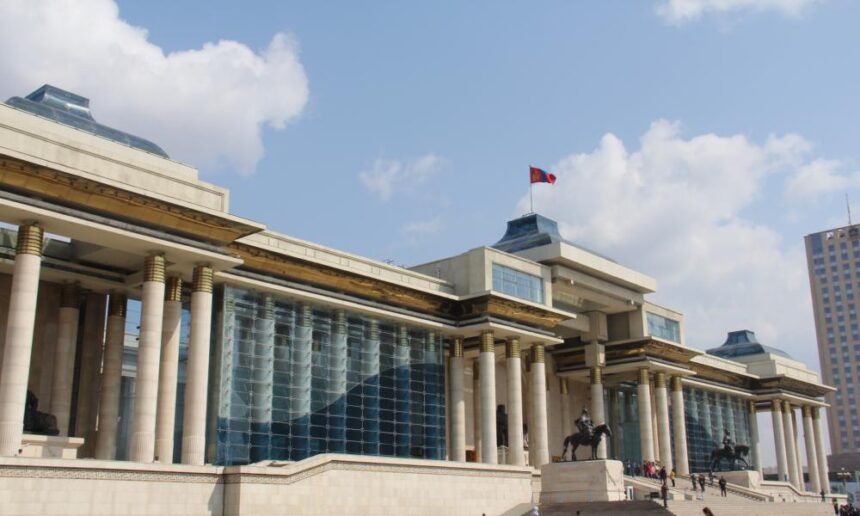(Summary of my speech delivered at the Australian National University, Canberra, November 13, 2012)
Forty years ago, on this very same day, in this exact city, the former Prime Minister of Australia Gough Whitlam said, “The decision we will make for our country is a choice between the past and the future, between the habits and fears of the past, and the demands and opportunities of the future.”
Mongolians made the same choice five months ago. After the 2012 parliamentary elections, the entire balance of power was basically transferred to the Democratic Party. Every Mongolian has faith and the expectation that this new government led by the political force that spearheaded the 1991 Democratic Revolution, will provide everyone with an opportunity to have a better life. However, even though Mongolia’s economy is growing rapidly, not every Mongolian now has a better life.
MACROECONOMIC OVERVIEW
Mongolia has experienced economic growth of 6.7 percent on average over the last 15 years (1997-2001) and its GDP per capital has increased six times over the same period. Our economy will grow four times in the next eight years and will almost have an increase of 10 percent each year until 2030. This will make Mongolia the fastest-developed country in the world (Citigroup Global Markets, 2011).
However, today Mongolia’s economy is far too greatly dependent on a single sector.The mining sector makes up 25 percent of our GDP and 95 percent of exports. According to a study carried out by the School of Economic Studies at the National University of Mongolia, the mining sector will gain more influence (29 percent) over Mongolia’s economy . The agricultural sector will only comprise 16 percent of GDP. This is if one tonne of copper is priced at USD 5,300 on average, an ounce of gold priced at USD 965, and a tonne of coking coal priced at USD 54 until 2040.
The two biggest mining projects will be the fundamental basis for GDP growth. By 2020,the Oyu Tolgoi deposit will produce 28 tonnes of gold and 800,000 tonnes of copper concentrate each year and will make up 25 percent of our economy alone. The Tavantolgoi deposit, on the other hand, will produce 10 million tonnes of coking coal and 40 million tonnes of thermal coal.
Commodity prices have gone up by 13 percent in the last four years, which is dramatically slowing down the real economic growth. Those who are registered as unemployed currently comprise 3-4 percent of our workforce.
ECONOMIC CHALLENGES
The main challenge faced by the business sector, which is the main driving force of the economy, is found to have connections with the government’s operational capacity. Rules and procedures required to acquire a business permit, register your business and pay taxes are not clear enough and this causes widespread bureaucratic corruption in Mongolia.
Financial sources to fund businesses are few – there are only bank loans which charge high interest rates. The number of businesses that can actually be left with a profit after making their interest payments of 24 percent each year keeps decreasing.
Businesses that are highly profitable but do not create any value are flourishing such as those that conduct business operations related to mining and those that acquire, pass on and sell special permits of land ownership in the capital city. Public servants (government officials) have had the most number of representatives in such businesses.
People are losing their faith in the government and in the society because our law enforcement agencies and organizations are breaking the very laws they advocate.
The biggest economic challenge of ours is to build infrastructure, which is the main condition for development, such as road, communications and reliable sources of heat and electricity.
The next challenge is to prepare and supply qualified personnel who possess the required skills and knowledge needed for development for the labor market. In order to achieve this goal, we need to improve the quality of education on all levels, develop technical professions and trainings and create a mechanism that links the operations of educational, science and research organizations with the business sector.
The Government of Mongolia is faced with a very fundamental need to keep stability of its economic policy, to have clear, understandable laws and rules and to ensure their implementation.
Also, it is time for the government to become capable of implementing certain policies during times of economic crisis induced by changes in market prices of a small number of minerals and a price cycle.
Mongolians are facing a very big challenge to improve its public governance, diversify our economy and cure our “Dutch disease” by converting natural resources into human capital. We are including tourism, meat products, cashmere, information technology and mining procurement and supply in the sectors of Mongolia’s economy that are most likely to become competitive in the world market.
Finally, I would like to say that we are observing and learning many things from Australia and want to adapt these practices in our country in order to successfully overcome the challenges that have been mentioned. The careful analysis of every step you’ve taken, failed or succeeded in will be a great lesson for Mongolians to go on the path that leads us forward.
Gough Whitlam’s speech that called for providing every single man and woman in Australia with an opportunity to work and prosper, not only sounds very clear and close to Mongolians today, but also accurately expresses our important and imperative goals.







